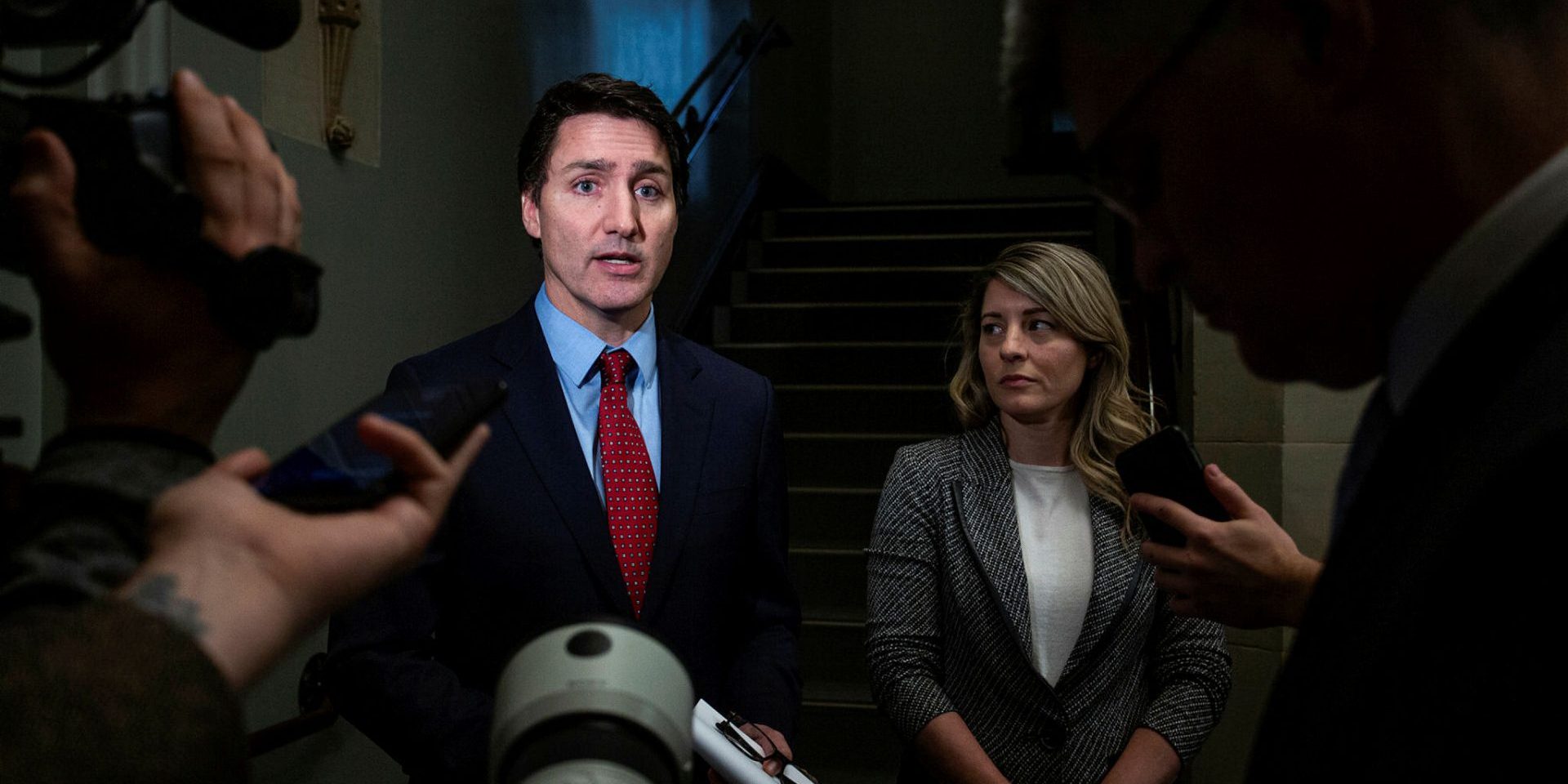Justin Trudeau’s 2023 foreign policy in review

OTTAWA—It seems superfluous to rate Justin Trudeau’s 2023 foreign policy program. He performed poorly. But that’s only because Trudeau was the prime minister of Canada. Had he been the president of the United States, he would have easily earned an “A++.”
The year started with the prime minister echoing the American promise that the Ukrainian counteroffensive would end “Putin’s war,” as Trudeau calls it. He vowed to fight “for as long as it takes.” It didn’t work. By October, all his policy goals, including a regime change in Russia, had come to a grinding halt, leaving him “profoundly embarrassed” for applauding a Nazi brought into Parliament to greet Ukrainian President Volodymyr Zelenskyy.
Then there was Trudeau’s overhyped Indo-Pacific strategy, invented to help U.S. President Joe Biden thump the rise of China by bolstering the authoritarian rule of Indian Prime Minister Narendra Modi. India, Trudeau assured us, shared our “tradition of democracy and pluralism.” That too failed, and badly. As a show of his gratitude, Modi, it turns out, was dispatching extrajudicial death squads both to the U.S. and to Trudeau’s pluralistic Canada.
There are other examples of flops and failures: missed opportunities with the BRICS bloc, the complete corrosion of relations with China, no big trade deals to speak of, no humanitarian aid success stories, nothing noteworthy on gender rights or climate change, misguided reliance on military intervention to solve Haiti’s structural problems, and a reluctance to put in legislative measures to stop the meddling by foreign agents. In all, 2023 amounted to a series of haphazard policy misfires, with little coherence or baseline.
Whether it was China, India, Russia, or Haiti, Trudeau appeared to take his cues from the United States, as if he were on a mission to convert Canada’s foreign policy project into an international adjunct of the Americans. However, acting American is not easy. The cultural contradictions can turn you into a political pretzel. You end up using twisted logic and perverse paradoxes.
This was on display during Israel’s assault on Gaza. Like Joe Biden, Trudeau sided with Israel. When pressed to be nuanced, after 14,000 Palestinians got killed, he called for a “humanitarian pause.” When pressed again after nearly 300,000 Canadians signed a Parliamentary petition to stop the war, he asked Israel to show “maximum restraint.” These are substitutes for the word ceasefire, which Trudeau refused to say. Perhaps Joe Biden—who vetoed a UN Security Council vote for ceasefire—hadn’t given the go-ahead. Only on Dec. 13 did Canada finally vote in favour of a ceasefire in a non-binding motion at the UN—breaking with longstanding Canadian foreign policy.
With his mind on cynical oxymorons, Trudeau neglected many of his other consular duties, like evacuating Canadians who got stuck in the war in Sudan. It was the same for those stranded in Gaza. While other countries were pulling out their citizens, the Trudeau government was sending emails telling its citizens to “be mindful of the security environment and where possible, take the necessary steps to ensure your safety and that of your family.”
Trudeau’s policy logic is pretzeled because it tries to balance the “forever wars” mentality of the U.S. against our moral code of peace and good government. To compensate for the inconsistencies, Trudeau tried to revive the “rules-based order.” It is a policy construct that relies on American hegemony and economic integration to achieve peace and equity. The order unfortunately has been smothered by right-wing nationalism, Covid-19, an assertive Global South, the war in Ukraine, and now Israel.
The prime minister’s dogma and rigid speaking points might be eroding Canada’s relevance in global affairs. This was apparent in the treatment he received at the 2023 G20 meeting in India and APEC in San Francisco. No world leader of any renown met him bilaterally or sought his geopolitical opinions. He was either ignored or overshadowed. That’s a shame because Trudeau is the longest serving G7 leader still in office.
The federal election is not due until 2025, far enough to adjust the game plan. Trudeau could consider giving his Foreign Minister Mélanie Joly more flexibility. In 2023, she unveiled a clever new framework to use “pragmatic diplomacy.” She appointed talented bureaucrats in key positions and was the sole cabinet minister to advocate for détente between Israel and Hamas. In rhetoric at least, Joly appears to favour the policy outlook of Canadians.
The prime minister must recognize that the U.S. is a superpower with an imperialistic ego. It can unilaterally start a war one day and walk away the next, with relative impunity. The same doesn’t hold true for Canada. Our GDP is less than the state of California, and emulating the Americans comes with penalties. It compromises our national identity and appeal in the world.
Canadians are catching on. Only 40 per cent are satisfied with Trudeau’s international engagement. That’s a failing grade. He can do better in 2024. It’s easy: cultivate an attitude of foreign policy independence; concentrate only on Canada’s vital interests; and try to ditch the American ideology.
Bhagwant Sandhu is a retired director general from the federal government. Between 2002-21 he held senior roles in several departments, including Fisheries and Ocean Canada, Infrastructure Canada, Treasury Board Secretariat, and Public Works Canada. He has also held executive positions in the governments of Ontario and British Columbia.
The Hill Times






 LICENSING
LICENSING PODCAST
PODCAST ALERTS
ALERTS


